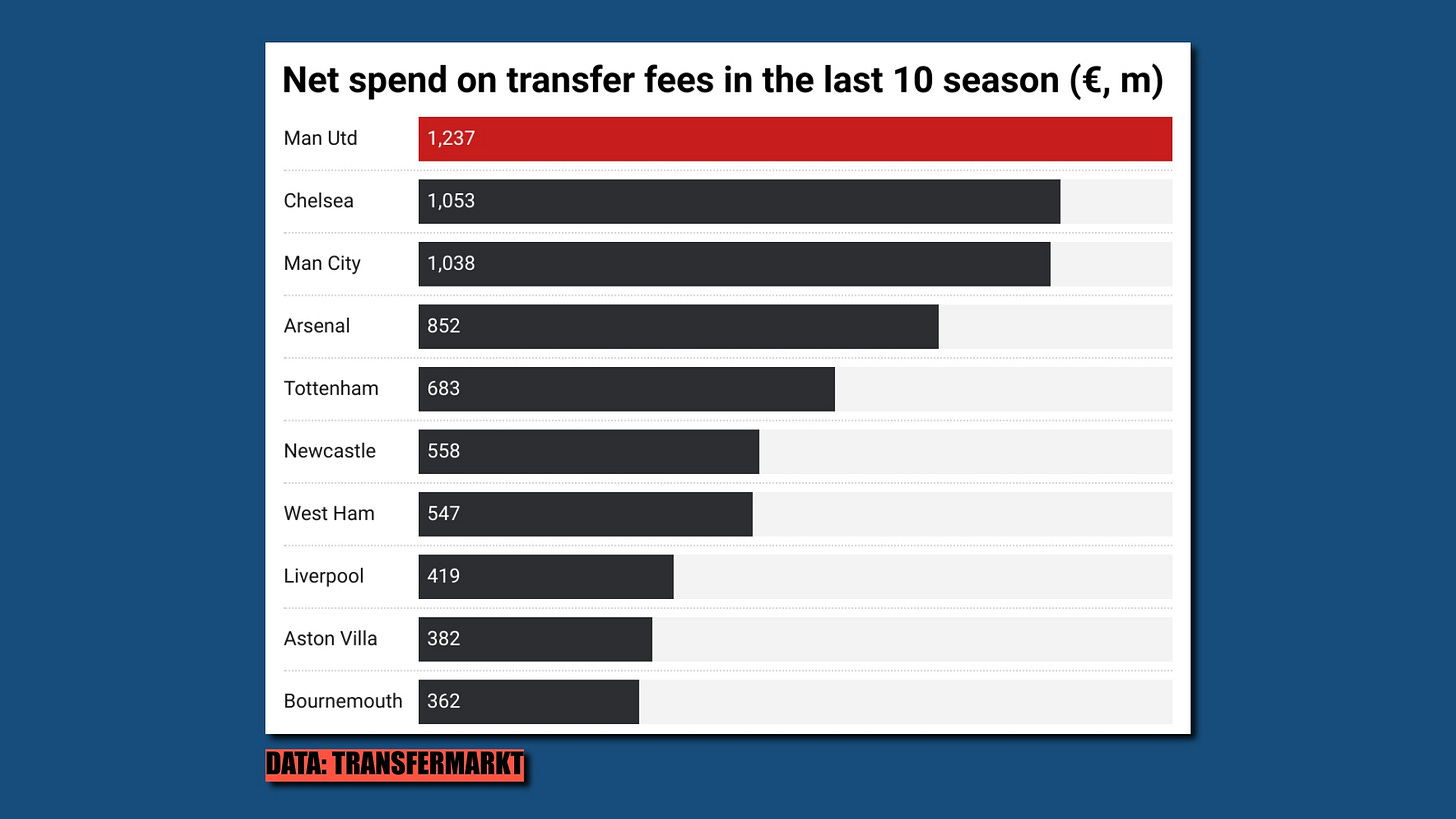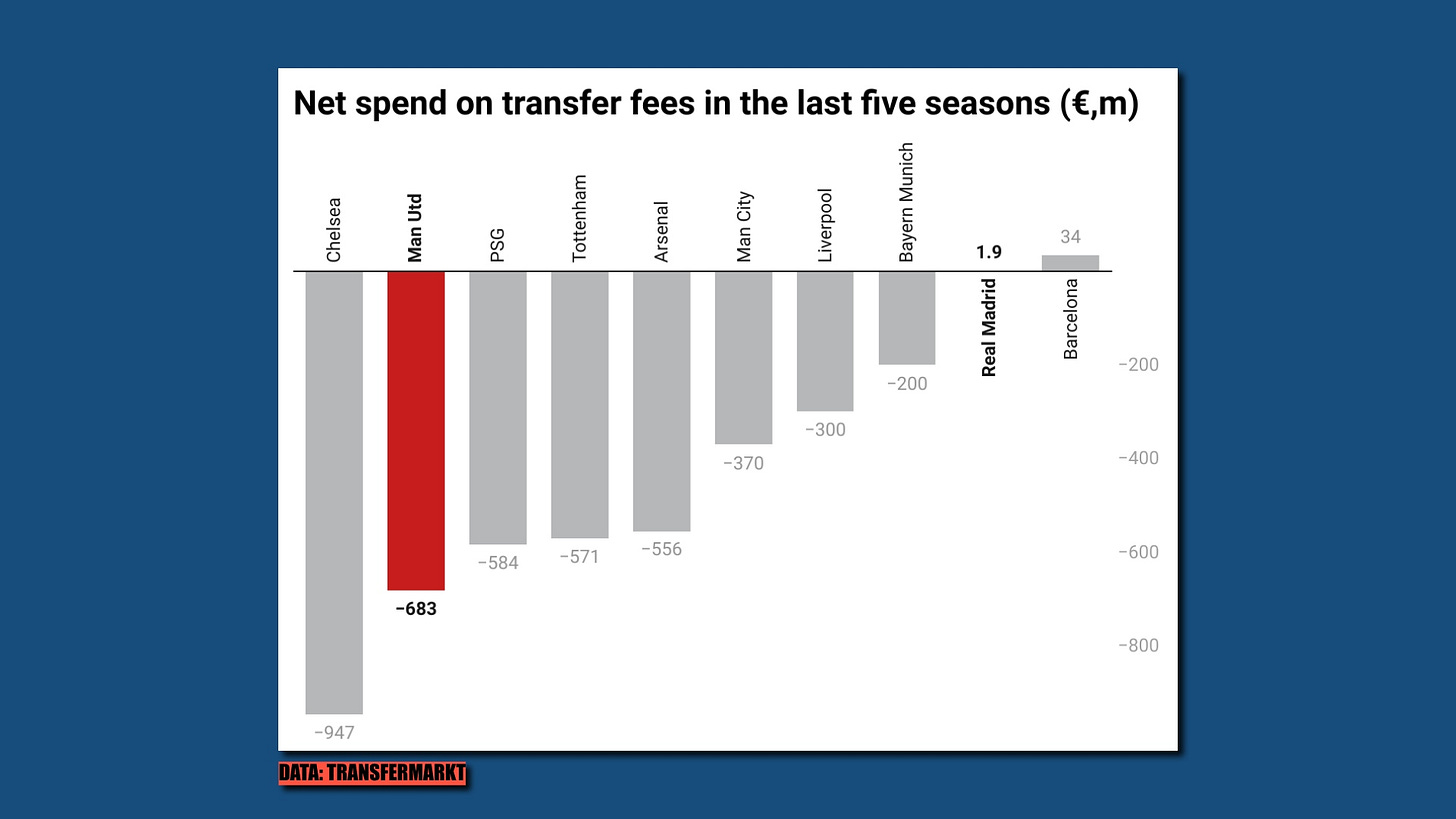As we all now know, Manchester United have unveiled plans to build a new 100,000 seater stadium to replace Old Trafford. Sir Jim Ratcliffe has said he wants it to be the most iconic stadium in the world, but I suspect the decision to build a new home for Man Utd is purely a financial one.
In my opinion, Man Utd are clearly taking inspiration from Real Madrid here. Whose revenue in the last 3-4 years has skyrocketed following the renovations to their own Santiago Bernabéu. But as I’ll hopefully be able to explain, increasing Man Utd’s matchday revenue won’t fix all of their problems and a closer look at Real Madrid’s transfer policy points to far smarter business practices than just more fans in white and purple seats.
Let’s start with Man Utd’s stadium revenue. When we take a look at the most recent Premier League matchday figures, Man Utd already make more money from matchday income than any other team in England. Now Ratcliffe may hope to dramatically improve that figure - which admittedly has stagnated in recent years - but it’s not as if Old Trafford is holding Man Utd back financially.
In fact, very little is. Despite Ratcliffe’s suggestions that the club would have went bust last year if not for staff redundancies, Man Utd have spent more money in the transfer market than any other English side in the last 10 years. And it’s here that we see the key difference between Ratcliffe’s proposed plans for Man Utd and the reality of Real Madrid’s success in the modern game.
While Los Blancos do make vast fortunes from their stadium, they also combine that with smart signings in the transfer market. And when we look at the net spend on transfer fees of the top 10 clubs in Europe by total revenue, we can see just how much they contrast to their Premier League rivals.
This, fundamentally, is because Real Madrid focus on signing young players for relatively small fees, like Eduardo Camavinga for €31m or Arda Güler for €20m, alongside established players on free transfers, like David Alaba, Antonio Rudiger or most notably Kylian Mbappe.
However, that entire business model relies on Real Madrid promising these players league titles and shots at the Champions League each and every season. And Manchester United can’t make that promise because they don’t have the sporting success that Real Madrid have worked hard to forge over a number of years.
As such, Ratcliffe’s plan for a new stadium to usher in a new age of success for Man Utd seems half baked at best. Because the Red Devils won’t ever match Real Madrid’s success unless they can combine it with sporting success and a much smarter approach to the transfer market.














